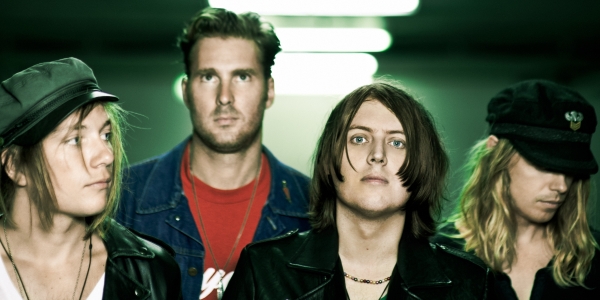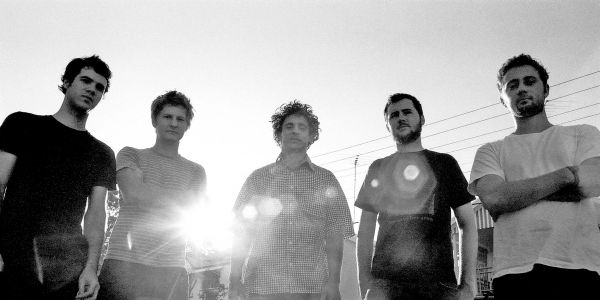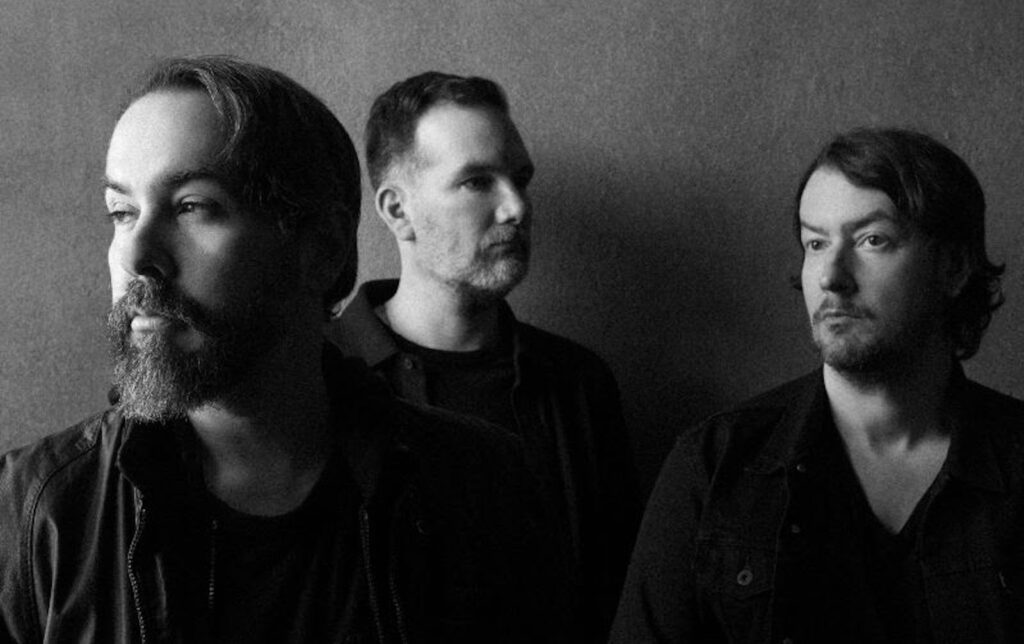Nicholls claims that he avoids reading articles about his band, but he’s still aware of the reputation that precedes him as the wild man of Australian rock. The question, as far as I can see it, is whether the Craig Nicholls we see depicted in the press is anything like the Craig Nicholls who exists in real life? “Well, it’s probably not me so much anymore,” he answers. “I was pretty crazy in the early days. I was definitely having a good time. I think some of the craziness that went into making Highly Evolved and some of the earlier albums has gone away – I’m definitely a lot more mellow now. I have a reputation for being the crazy one, but these days, the other guys in the band are a lot crazier than I am.” Founding member Matthews has never come back, but in general, the atmosphere in The Vines is a lot happier these days. “We’re loving working on the new album,” Nicholls tells me, when I ask about the band’s present dynamic. “We just love making music together. It’s really cool.”
‘Cool’ is one of Craig Nicholls’ favourite words, and he uses it pretty much all of the time. Playing the main stage at the Splendour In The Grass festival is cool. Touring Europe and America and being met by throngs of screaming female fans on the strength of your debut album is cool. Writing new songs and working with new producers is cool. The meteoric rise to fame that The Vines experienced, followed by the subsequent cooling-off period – and the ceaseless media coverage of both these things – would turn many people into cynics, but Nicholls is not most people. He genuinely loves music, and when he tells me that his ambition for the future is to go on writing and playing songs as long as there are people out there to enjoy them, he is being completely truthful.
The Vines’ fifth album, Future Primitive, came out last month. It’s their first entirely self-financed album, but sound- and feel-wise, it’s business as usual, a collection of fuzzed-out garage rock and pop that clocks in at just a shade over half an hour. The band made the record with producer Chris Colonna, better known for his work as part of eclectic cut-n-paste dance guys Bumblebeez, and he brought his own distinctive touches into the studio. “It was good, it was really cool making the album with him,” Nicholls says of their working relationship. “We got along well. He’s kind of young – for a producer, I mean – and he had a lot of crazy ideas on how to improve the sound.”
The album does indeed feature a slight update of The Vines’ sound, not in terms of the songwriting, but in the little tweaks and curlicues of electronic sounds around the edges. Were these Chris Colonna’s idea? “Um, I think it went both ways,” Nicholls tells me. “We definitely thought it would be cool working with him, because he could do the kind of stuff we wouldn’t have any knowledge of. We definitely had the idea in mind that he could give us a new sound, take our music in a bit of a different direction.” So did the experience give them anything to take away for next time? “I think the one thing we took away was that you should never be tied down to just the one way of working. We really threw the rule book away when we went into the studio with him, and it worked out great for us.”
Future Primitive is only just out, but The Vines are in a productive period right no; as Nicholls alluded to, they’re already in the studio working on album number six. In a recent triple j interview, he said that the finished product might be out within the next few months, but when I press him on this, he’s uncertain. “It’s possible, but I wouldn’t say for sure,” he says. “We may find that we want to record a bunch more songs, in which case we’ll be in the studio for a bit longer. I can’t say for sure how it’s going to go, but if not this year, the new album will hopefully be out early next year.” What about the sound of the album, I ask him – how are the songs shaping up? “They’re epic acoustic monsters,” he tells me enthusiastically. “They’re really trippy. They’re mostly acoustic, but we’ve brought in some other elements as well, some orchestral touches and some strings. They’re going to be really cool.”
When researching for my interview with Nicholls, I came across a Guardian article from a few years back, where one particularly interesting fact popped out. The piece said that the audience for a Manchester gig that The Vines played in 2002 included one Alex Turner; it was his first ever show, and Nicholls’ performance left an indelible impression. He later told Guardian writer Craig McLean that, when watching Nicholls, he felt “that’s what being a singer is all about”, and decided that, should he ever be fronting a band, he would do what Nicholls did. Turner, of course, went on to front Arctic Monkeys, one of the most successful UK bands of the last half-decade – and, arguably, products of The Vines’ ongoing garage rock legacy.
I ask Nicholls what it feels like to know that he and his band directly influenced a whole new wave of artists. “It feels really good, yeah,” he says. “Really amazing. For me, Arctic Monkeys are one of the most important bands to happen in the last five years. They’re doing such great things, and to think that we’ve had some kind of influence on them is…” – he thinks about this for a while. “It’s just really cool.”







